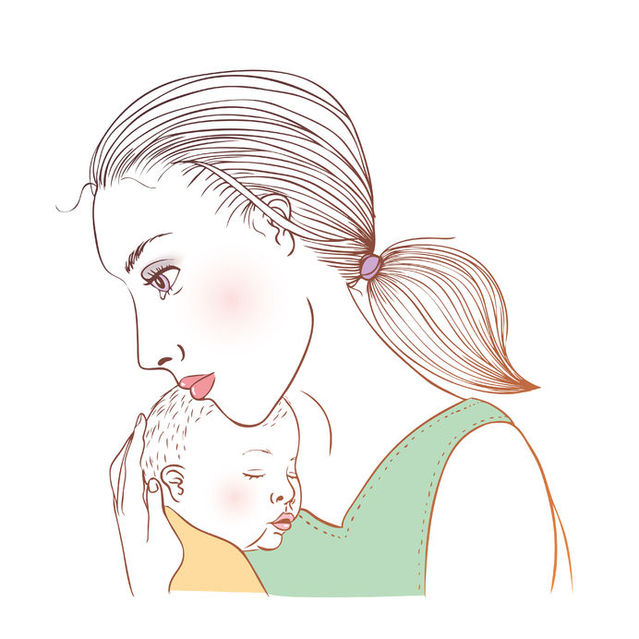Postpartum Depression
Is Authentic Suffering the Missing Link?
We cannot afford to miss this.
Posted July 18, 2017

A CAUTIONARY NOTE TO THERAPISTS WHO THINK THEY CAN/SHOULD TREAT PREGNANT AND POSTPARTUM WOMEN WITHOUT SPECIALIZED TRAINING
This past weekend, I was fortunate to speak at Postpartum Support International’s (PSI) annual conference, whose clear and inspirational mission is posted on their website:
“The mission of Postpartum Support International is to promote awareness, prevention and treatment of mental health issues related to childbearing in every country worldwide. It is the vision of PSI that every woman and family worldwide will have access to information, social support, and informed professional care to deal with mental health issues related to childbearing. PSI promotes this vision through advocacy and collaboration, and by educating and training the professional community and the public.”
This is exactly what they do. Like no other organization. And by all accounts and my personal observation, they do it extraordinarily well.
But they do more than this, which was brought to my attention, this past week during the conference.
It was my pleasure and honor to present one of the keynotes speeches with Amy Wenzel, PhD, my esteemed colleague and co-author. Myself, along with other perinatal (pregnant and postpartum) advocates connected with hundreds of like-minded clinicians, researchers, lay people, and various medical and support professionals who convene once a year to share, educate and inspire. Those of us who have dedicated our professional lives to this work are unquestionably impressed and inspired by their mission and the execution of their vision. We work hard to support this cause and many of us write and speak and educate on various aspects of perinatal mood and anxiety disorders (PMADs, or PPD for short). We do so to increase PPD awareness, provide access to state-of-the-art information and disseminate details of current research and treatment options.
Yet, the unique needs and nuances that are intrinsic to the perinatal population can actually put women at risk for being misunderstood or misguided by otherwise well-informed and well-intended providers.Those of us in the PPD community worry about this.
After my talk, I was greeted by a friend in the field who came up to me to tell me how much the presentation had moved her. (That is always a welcomed bonus of speaking in front of a large audience, when one person is personally or professional touched in some meaningful way and shares that with me.)
Sonia Murdock is a past president of PSI and founder of the Postpartum Resource Center of New York, Inc., where she tirelessly trains and consults professionals and non-professionals who are equally dedicated to this specialized field of practice. Sonia proceeded to share her thoughts:
“This is the missing link,” she claimed. “The missing link.”
“Thank you, Sonia. But, what? What do you mean?”
“Your talk. Your focus on her authentic suffering. This is it. This is what will save lives.”
“Wow. Sonia. Thank you for that,” somewhat stunned by her generous praise of my work and my own mission.
I thought about what she said.
And what she meant.
Some of my words in the speech made reference to the more global efforts that are being made on behalf of perinatal women in distress, such as the research, the advocacy, the legislation. Which is, decidedly, movement in the right direction, away from the shame and isolation of distant days and current stigmas, but still…
Women continue to die.
The reference in my presentation to authentic suffering was this: Authentic suffering, is defined as:
Authentic suffering is that which is obscured by what she wants us to know and what she will let us see.
It’s the pain she conceals.
It’s the terror that immobilizes her and keeps her up at night.
It’s what drives her anxiety and her fear that she will continue to fall, forever.
It’s what’s in her suicide note when loved ones cry out that, “there were no warning signs."
As therapists, we don’t always see authentic suffering at first, especially when she doesn’t want us to.
But our job is to find it and connect with it.
Ah ha! This is what Sonia was referring to when she articulated precisely what I was trying to say. "After all," she said emphatically, "it's 'what's in her suicide note.' THIS is what will save lives.” she said.
Yes, indeed. If women are not always revealing how bad they feel, if women continue to be silenced by stigma, by shame, by fear of judgement from others or from themselves — it doesn’t matter what legislation is passed, it doesn’t matter which screening protocol we use, it doesn’t matter how good we think our interventions are — if she doesn’t feel safe enough to disclose the nature and severity of her symptoms, she will save them for her suicide note.
And that is not okay.
Therapists with specialized training in perinatal mental health are obliged to consider the best and immediate access to her authentic suffering. While I shamelessly promote the Holding approach (Kleiman, 2017), I will be the first to proclaim that I do not care how or where clinicians obtain the necessary information; I only ask that therapists who find themselves sitting face-to-face with a pregnant or postpartum woman in severe and acute distress, make sure they do what they need to do to become informed and capable of responding appropriately and urgently.
The stakes are very high.
Passion and devotion to this work is a bonus, but expert training is essential. On-going supervision/consultation/mentoring is a clincial imperative. The board of directors and staff at PSI know this only too well and continue to train scores of professionals who can positon themselves to catch vulnerable women when they fall.
So, in addition to the love and giggles that permeate the otherwise informational and educational nature of the very serious subject at hand, PSI is saving lives.
All too often we are thrust into a rapid and excruciating response to a perinatal tragedy. Those of us who work in this field know that at any moment, we are just a heartbeat away from a woman in despair losing her battle with depression.
This is why we do this work. This is why it feels so important. This is why it is not okay for perinatal women who are bone-tired and weary from hopelessness, to traipse from one misinformed provider to another.
If this is an area of interest for you, study the literature. Read the books. Go to trainings. Be informed before you sit with her. Get in touch with your best professional self and work hard to access her authentic suffering. She is not going to offer that up to you. She will withhold it. She will disguise it. If her pain is unendurable, she will pray you never find it.
Make no mistake about it, she may not know it yet, but she is counting on you to help save her life.
Kleiman, K. (2017). The Art of Holding in Therapy: An Essential Intervention for Postpartum Depression and Anxiety. New York, NY: Routledge
The Postpartum Stress Center
Postpartumstress.com




